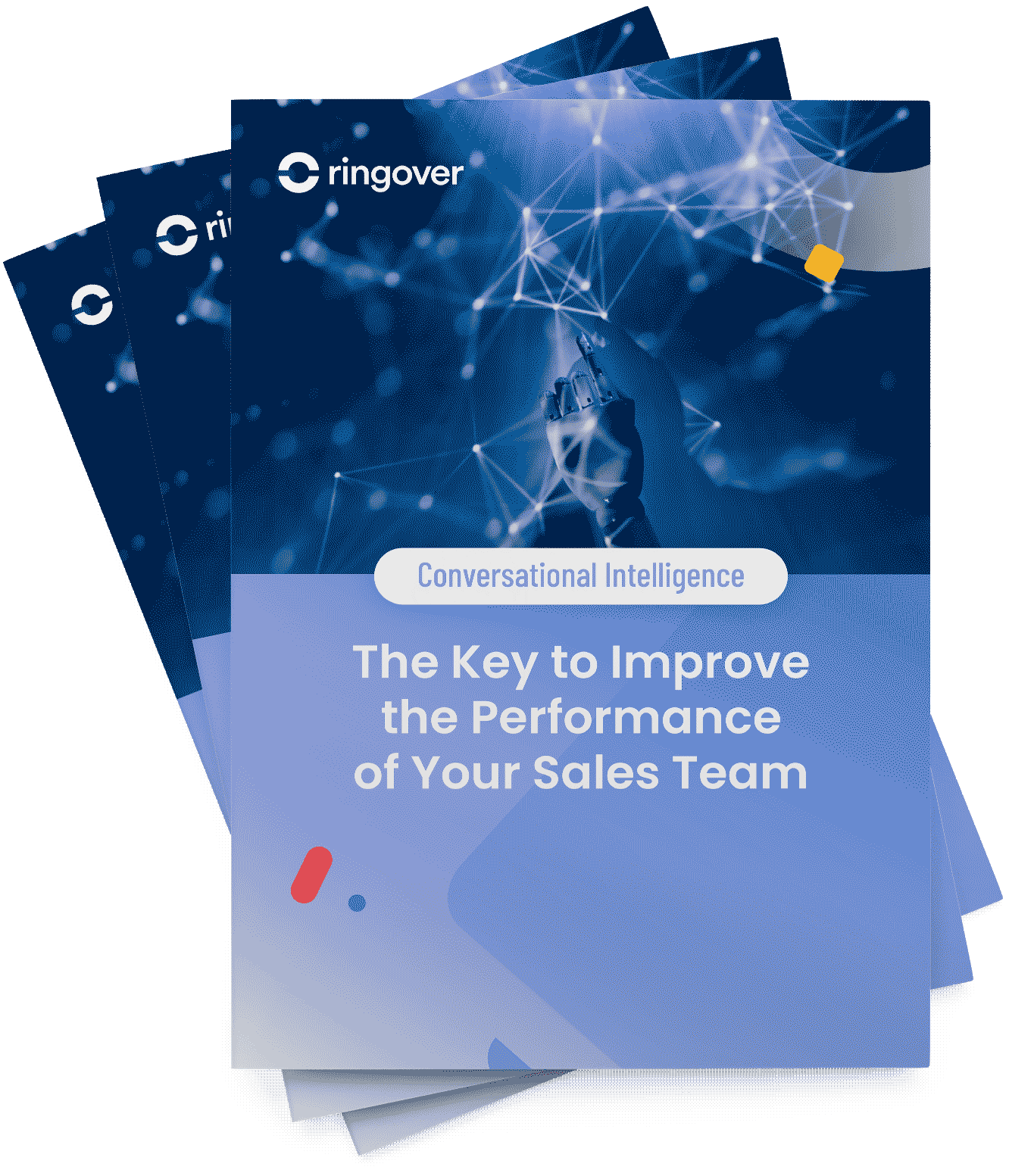Summary
Online retailers, by harnessing the power of AI, can accumulate and scrutinise extensive customer data to decode individual preferences, behaviours, and requirements. This insight-driven strategy enables companies to offer tailored product suggestions, enhance customer service efficiency, and elevate the overall user satisfaction.
Try Empower for e-Commerce10 Use Cases for AI in ecommerce
1. Personalised Product Recommendations
AI-powered recommendation engines utilise customer behaviour, purchase history, and preferences to offer personalised product suggestions. This targeted approach not only increases the likelihood of a sale but also elevates customer satisfaction by delivering more relevant recommendations.
2. Dynamic Pricing
AI tools employ real-time data analysis on supply and demand, competitor pricing, and market trends to optimise pricing strategies. By adjusting prices dynamically, businesses can ensure their offerings are competitively priced, maximising profitability.
3. Enhanced Customer Service
Chatbots, equipped with natural language processing (NLP) and machine learning capabilities, address customer inquiries, offer support, and gather feedback around the clock. This automation reduces the burden on human customer service teams and enhances response efficiency.
There's also conversation intelligence software like Empower by Ringover, which automatically transcribes and summarises customer calls. Using semantic analysis can identify the topics discussed and provide key metrics regarding the performance of the salesperson or customer service representative. This ensures that you can identify best practices when interacting with customers and coaching opportunities. Plus, it offers a variety of integrations, including with popular CRMs like Hubspot.
4. Customer Segmentation
Through the analysis of customer data, AI-driven segmentation tools identify patterns and similarities among customers. This enables businesses to craft targeted marketing campaigns and personalised communications, leading to a deeper understanding of customer needs and more tailored strategies.
5. Smart Logistics and Inventory Management
Utilising IoT devices and machine learning algorithms, AI optimises inventory levels, forecasts demand, and streamlines supply chain operations. This leads to more efficient production processes, minimised overspending, and improved delivery times.
6. Sales and Demand Forecasting
AI-based forecasting tools leverage historical sales data, demographic insights, and external factors to accurately predict future sales and demand patterns. Armed with this information, businesses can make strategic decisions regarding inventory management and pricing.
7. Voice and Visual Search
AI enhances websites for voice and visual search capabilities, allowing customers to find products using voice commands or images. This innovation improves the shopping experience by delivering quick and relevant search results.
8. Fraud Detection and Prevention
By analysing transaction patterns and spotting anomalies, AI algorithms play a key role in detecting and preventing fraudulent activities. This contributes to a safer shopping environment and minimises financial losses related to fraud.
If you incorporate a conversation intelligence software, you’ll have greater visibility in your customers’ preferences and your team’s performance.
9. Auto-Generated Content
AI is capable of producing high-quality product descriptions, images, and other content automatically. This efficiency saves significant time and resources while ensuring consistency and accuracy in product information.
10. Fake Reviews Identification
AI tools excel at identifying and eliminating fake reviews, ensuring that customers are exposed to authentic feedback. This fosters trust and credibility, aiding customers in making well-informed purchasing decisions.
These use cases underscore the transformative role of AI across various facets of e-commerce, from enhancing customer engagement to optimising backend operations. By adopting these AI technologies, businesses can achieve greater efficiency, drive sales, and significantly improve customer satisfaction.
Benefits of Artificial Intelligence for e-Commerce
The integration of artificial intelligence (AI) in e-commerce offers a multitude of benefits that significantly boost operational efficiency and customer satisfaction. Below are the primary advantages of incorporating AI into the e-commerce industry:
1. Increased Productivity
AI streamlines a variety of manual processes within the e-commerce workflow, including order fulfilment, customer service, and payment processing. This streamlining minimises the need for human labour, allowing for the reallocation of resources towards more strategic and creative endeavours.
2. Enhanced Sales and Revenue
Utilising AI for marketing strategies and personalised customer support can lead to a surge in sales. AI's ability to analyse customer data helps in identifying potential customers and engaging them with customised messages at the optimal moment, thereby boosting conversion rates and elevating revenue.
3. Improved Customer Loyalty
AI's analysis of customer behaviour across various sales channels yields insights that enhance the brand experience and increase customer retention. Personalised recommendations and communications, powered by AI, solidify customer relationships and promote loyalty.
4. Reduced Operational Costs
The high degree of automation in AI-powered workflows conserves both time and money, which can be redirected towards more vital business aspects. For example, incorporating AI in supply chain management can cut errors by as much as 50%, decreasing lost sales and product shortages.
5. Mitigation of Fraud Risks
AI algorithms excel in detecting and preventing fraudulent activities by spotting irregularities in transaction patterns. This bolsters the security of e-commerce platforms and curtails financial losses stemming from fraud.
6. Personalised Customer Experience
AI facilitates the crafting of deeply personalised brand experiences by analysing customer data and preferences. This customization extends to product suggestions, search functionalities, and customer service interactions, culminating in a more gratifying and engaging shopping journey.
7. Real-Time Data Analysis
AI tools have the capability to analyse data in real time to forecast future trends and consumer demands. This predictive ability assists e-commerce companies in making well-informed decisions regarding inventory management, pricing strategies, and marketing initiatives.
8. Efficient Inventory Management
AI-enhanced inventory management systems can effectively monitor stock levels, optimise stock ordering, and address logistical challenges. This ensures the availability of products when customers need them, mitigating the risks of stockouts and excess inventory.
Collectively, these benefits highlight how AI can revolutionise the e-commerce landscape, rendering it more efficient, focused on the customer, and profitable. By adopting AI, businesses can maintain their competitive edge and provide unparalleled customer experiences.
How is Generative AI used in e-commerce? Examples
Generative AI has emerged as a pivotal technology in the e-commerce sector, driving innovation and enhancing customer experiences. Below, we explore the various applications of generative AI in e-commerce:
Content Generation
Generative AI plays a significant role in automating the creation of content such as product descriptions, reviews, blog posts, and social media content. A prime example is Alibaba, which employs generative AI algorithms to automatically generate detailed product descriptions for its vast inventory. This innovation streamlines the listing process for sellers and provides compelling, informative product descriptions that attract buyers.
Virtual Try-On and Product Visualisation
Through generative AI, virtual try-on technology enables customers to visualise how clothes, accessories, or makeup items would look on them before purchasing. This technology enhances customer confidence, minimises returns, and subsequently increases sales and customer satisfaction.
Dynamic Pricing and Market Analysis
Generative AI algorithms are adept at analysing real-time data regarding market trends, competitor pricing, and customer behaviour to fine-tune pricing strategies. By employing dynamic pricing, businesses ensure their products are competitively priced, thereby maximising revenue and sustaining market competitiveness.
Personalised Product Recommendations
Utilising customer data, including browsing history and preferences, generative AI tools offer personalised product recommendations. This level of personalization improves the shopping experience, boosts conversion rates, and cultivates customer loyalty.
Chatbots and Virtual Assistants
AI-driven chatbots and virtual assistants are implemented to manage customer service tasks, offering timely and relevant support around the clock. These conversational agents interact with customers in a natural, human-like manner, enhancing customer service efficiency and reducing operational costs.
New Product Development and Market Validation
Generative AI is instrumental in analysing customer feedback and market trends to spark new product ideas. It also plays a key role in validating the viability of these products through simulations and predictive analytics, ensuring they meet market demands and are practical to produce.
Semantic Analysis and Customer Feedback
By analysing customer feedback, reviews, and social media commentary, generative AI tools assess overall sentiment. This analysis allows businesses to proactively address issues, make informed decisions, and tailor communication strategies to meet customer expectations.
These instances highlight the transformative impact of generative AI across different facets of the e-commerce industry, from content generation and product visualisation to customer engagement and service. By embracing these technologies, businesses are equipped to offer more captivating, efficient, and personalised shopping experiences.

What Are the Problems of AI in e-Commerce?
Artificial intelligence (AI) brings a host of advantages to the e-commerce sector, but it's not without its challenges. Below are the main issues facing businesses as they integrate AI into their operations:
Data Privacy and Security Concerns
AI systems depend on extensive customer data, encompassing sensitive details like purchase history, browsing habits, and personal information. Protecting this data's privacy and security is paramount.
Businesses are required to adhere to laws such as GDPR and CCPA, and breaches can lead to significant repercussions.
Bias in AI Algorithms
Bias can creep into AI algorithms based on the data they're trained with, potentially causing unfair advantages for certain groups over others. This is especially true if the data does not accurately reflect the diverse customer base.
High Initial Costs and Complexity
The initial setup for AI in e-commerce can be costly and complex, posing a particular challenge for smaller businesses. Expenses include hiring specialised staff, investing in technology, and developing or acquiring AI models. Moreover, AI systems demand considerable expertise for effective management and operation.
Integration with Existing Systems
Integrating AI technologies with existing legacy systems can prove difficult and expensive for many e-commerce businesses. This often necessitates a comprehensive overhaul of current infrastructures, requiring substantial time and resources.
Lack of Transparency and Trust
The opacity of AI systems can obscure the rationale behind personalised recommendations or automated services, undermining customer trust and hindering the development of a reliable brand image.
Talent Shortage
The e-commerce industry faces a pronounced scarcity of professionals skilled in AI and machine learning. Attracting and retaining such talent is a formidable challenge, given the competitive market for these experts.
Technical Glitches and Overreliance on Algorithms
AI systems are susceptible to technical failures that can disrupt essential services like product recommendations and customer support. Furthermore, excessive dependence on algorithms may diminish the personal touch in customer service, potentially detracting from the customer experience.
Data Quality and Availability
Effective AI operation requires high-quality, readily available data. Insufficient or poor-quality data can impair the insights and recommendations generated by AI, compromising its utility.
To harness AI's full potential in e-commerce while navigating its challenges, businesses must proactively address these issues. Recognizing these hurdles allows for the implementation of strategic measures to mitigate their impact, ensuring a fruitful integration of AI technology.
Conclusion
The incorporation of artificial intelligence (AI) within the e-commerce sector is poised to significantly transform the landscape, providing superior customer experiences, enhancing operational efficiencies, and boosting sales. The critical insights to take from this include leveraging AI for crafting personalised product suggestions, implementing dynamic pricing strategies, and managing inventories with greater precision.
Not to mention, you can use tools like Empower to gain a deeper understanding of your customers and the performance of sales and customer service representatives. If you're curious to see the benefits Empower can bring to you, start your free trial today!
Published on September 6, 2024.



